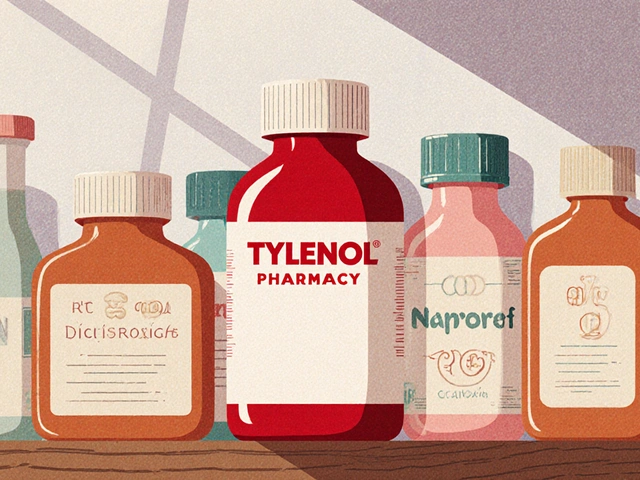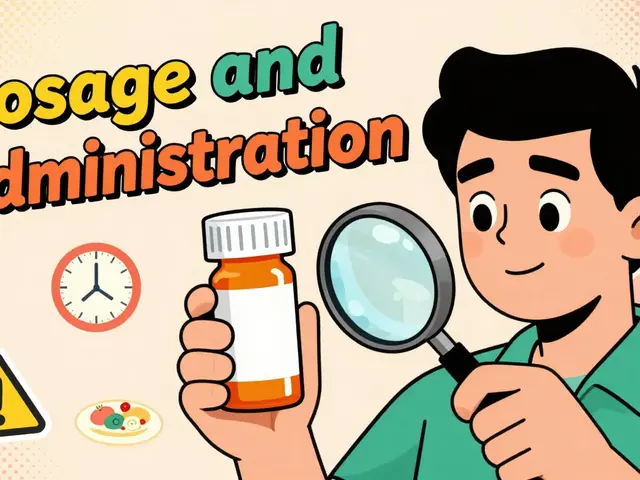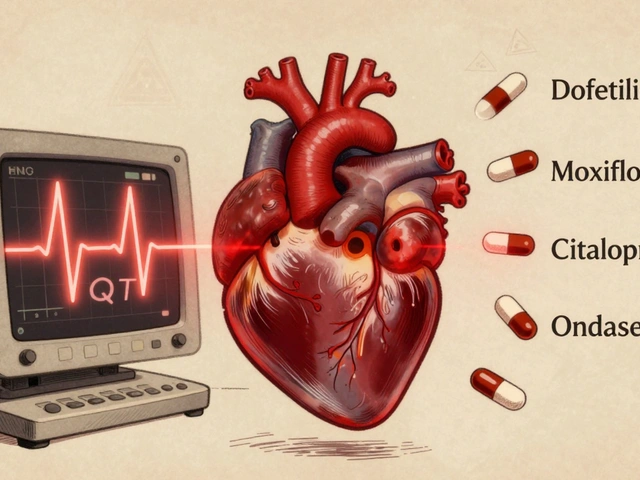Hypocalcemia in Pregnancy: What to Know and How to Manage It
Understanding Hypocalcemia in Pregnancy
When we think about pregnancy, we often focus on the joy and excitement that comes with welcoming a new life into the world. However, it is also essential to be aware of the potential health challenges that can arise during this time. One such challenge is hypocalcemia, a condition characterized by low levels of calcium in the blood. In this section, we'll explore what hypocalcemia is, why it occurs, and how it can affect pregnant women.
Causes of Hypocalcemia in Pregnancy
There are several factors that can contribute to the development of hypocalcemia during pregnancy. One of the primary reasons is the increased demand for calcium by the developing fetus. The baby needs calcium for proper bone growth and development, which may deplete the mother's calcium stores. Another cause of hypocalcemia in pregnancy is the hormonal changes that occur during this time. These hormonal changes can affect the body's ability to absorb and utilize calcium, leading to low calcium levels. In some cases, an underlying health condition, such as kidney disease or vitamin D deficiency, can also contribute to the development of hypocalcemia.
Symptoms of Hypocalcemia in Pregnancy
Recognizing the signs and symptoms of hypocalcemia is crucial for ensuring proper management and treatment. Some of the most common symptoms of hypocalcemia in pregnancy include muscle cramps, weakness, numbness or tingling in the extremities, and fatigue. In more severe cases, hypocalcemia can lead to more serious complications, such as seizures, irregular heartbeats, and even heart failure. It is essential for pregnant women to be aware of these symptoms and to seek medical attention if they suspect they may be experiencing hypocalcemia.
Diagnosing Hypocalcemia in Pregnancy
If you suspect that you may have hypocalcemia during pregnancy, it is important to consult your healthcare provider for a proper diagnosis. Your doctor will likely perform a blood test to measure your calcium levels and may also test for other related factors, such as vitamin D levels and parathyroid hormone levels. In some cases, additional tests may be necessary to determine the underlying cause of the hypocalcemia.
Preventing Hypocalcemia in Pregnancy
Prevention is always the best medicine, and this is especially true when it comes to hypocalcemia in pregnancy. A balanced diet rich in calcium and vitamin D is essential for maintaining healthy calcium levels during pregnancy. Foods high in calcium include dairy products, green leafy vegetables, and fortified cereals. Vitamin D can be obtained through sun exposure and certain foods, such as fatty fish and fortified milk. In addition to a balanced diet, your healthcare provider may recommend calcium and vitamin D supplements to ensure that you are getting the necessary nutrients for a healthy pregnancy.
Treating Hypocalcemia in Pregnancy
If you have been diagnosed with hypocalcemia during pregnancy, your healthcare provider will work with you to develop a treatment plan tailored to your specific needs. This may include dietary adjustments, calcium and vitamin D supplements, or in more severe cases, intravenous calcium administration. It is important to follow your doctor's recommendations closely and to monitor your symptoms to ensure that your calcium levels are being adequately managed.
Complications of Hypocalcemia in Pregnancy
While mild cases of hypocalcemia may not cause significant harm to the mother or baby, more severe cases can lead to serious complications. For the mother, untreated hypocalcemia can result in seizures, irregular heartbeats, and heart failure. For the baby, low calcium levels can affect bone development and growth, as well as increase the risk of preterm birth and low birth weight. Early diagnosis and proper management of hypocalcemia are essential to minimizing the risk of these complications.
Living with Hypocalcemia in Pregnancy
Dealing with hypocalcemia during pregnancy can be challenging, but with the right guidance and support, it is manageable. By working closely with your healthcare provider, maintaining a healthy diet, and following your prescribed treatment plan, you can help ensure the health and well-being of both you and your baby. Remember to pay attention to your body and to seek medical attention if you notice any signs or symptoms of hypocalcemia. By taking these steps, you can enjoy a healthy and happy pregnancy journey.







16 Comments
Melissa H.
June 2, 2023 at 07:31
Wow, low calcium during pregnancy can really throw a wrench in the works 😮. It's crucial to keep an eye on calcium intake early on, especially with the baby’s bone growth demanding more.
Edmond Abdou
June 2, 2023 at 07:33
Totally agree! 👍 A balanced diet plus the right supplement plan can make a huge difference. Always chat with your OB‑GYN to tailor the approach.
Sydnie Baker
June 2, 2023 at 07:35
One must underscore the epistemological ramifications of iatrogenic hypocalcemia, particularly when the provider neglects the pharmacokinetic nuances of calcium homeostasis. Moreover, the vernacular employed herein should eschew colloquialism in favor of precise clinical terminology.
Benjie Gillam
June 2, 2023 at 07:38
When it comes to hypocalcemia in pregnancy, the body basically plays a tug‑of‑war with the baby for calcium. The fetus needs calcium for skeletal development and the mother’s stores get drained if the diet isn’t on point. This depletion can manifest as muscle cramps, tingling, or even more serious cardiac arrhythmias. First thing u should do is get a blood test to see what the calcium levels actually are. If the numbers are low, a doctor will probably prescribe calcium carbonate or citrate along with vitamin D. Don’t forget that vitamin D is a key player because it boosts intestinal absorption of calcium. Some folks think drinking milk alone is enough, but the reality is that you need a balanced intake of dairy, leafy greens, and fortified foods. In addition, keep an eye on your parathyroid hormone levels, because they regulate calcium metabolism. A pregnant woman with chronic kidney disease might need more intensive monitoring, since renal function affects vitamin D activation. Lifestyle factors matter too; moderate sun exposure can help your skin synthesize vitamin D, but sunscreen overuse can blunt that effect. If u’re feeling fatigued or notice involuntary muscle spasms, that’s a red flag to call your healthcare provider ASAP. Intravenous calcium gluconate is reserved for severe cases, especially if there are seizures or cardiac disturbances. Post‑delivery, calcium needs normalize, but it’s still wise to continue supplementation if you’re breastfeeding. Overall, the key is proactive monitoring, dietary diligence, and a good partnership with your medical team. Never ignore mild symptoms, because they can evolve into something more dangerous if left unchecked. Stay informed, stay hydrated, and make those nutrient‑dense food choices a daily habit.
Naresh Sehgal
June 2, 2023 at 07:40
Listen up – you can’t just wing it with diet alone. Get a professional assessment, track your labs, and follow the supplement regimen *exactly* as prescribed. No excuses.
Poppy Johnston
June 2, 2023 at 07:43
Just a heads‑up, I was a mom-to‑be last year and didn’t even realize my calcium was low until my doctor mentioned it. A little extra cheese and a daily prenatal vitamin saved the day.
Johnny VonGriz
June 2, 2023 at 07:45
That’s a solid tip! Adding a quick calcium‑rich snack between meals can keep levels steady, and it’s super easy to fit into a busy schedule.
Real Strategy PR
June 2, 2023 at 07:48
Ignore the hype, just take your vitamins.
Doug Clayton
June 2, 2023 at 07:50
Doug here, I think the article hits the nail on the head, it’s practical and straight to the point, especially for first‑time moms, keep it up
Michelle Zhao
June 2, 2023 at 07:53
Permit me to articulate the gravitas of maternal calcium deficiency; such a malady, if unmitigated, portends a cascade of morbidities that jeopardize both progeny and matron alike. The discourse herein, while commendable, scarcely captures the epic struggle endured by countless expectant women.
Eric Parsons
June 2, 2023 at 07:55
Indeed, the physiological demands of gestation necessitate meticulous oversight of mineral homeostasis. A collaborative approach between obstetricians and nutritionists ensures optimal outcomes for both mother and child.
Mary Magdalen
June 2, 2023 at 07:58
This is exactly why we need to champion homegrown dairy and fortify our food supply – rely on foreign imports and you’ll watch deficiencies skyrocket!
Dhakad rahul
June 2, 2023 at 08:00
Ah, the melodrama of nutritional neglect! One cannot simply dismiss the cultural significance of calcium‑rich traditions 😏.
William Dizon
June 2, 2023 at 08:03
Hey folks, happy to chime in – if you’re looking for reliable sources, the NIH Office of Dietary Supplements has great guidelines on prenatal calcium intake.
Jenae Bauer
June 2, 2023 at 08:05
Sure, the article says it’s all about diet, but haven’t you heard about the hidden agendas of supplement companies? Probably nothing to worry about.
vijay sainath
June 2, 2023 at 08:06
Look, you’re all missing the point – the real issue is that the pharma industry manipulates calcium stats to sell more pills, wake up!